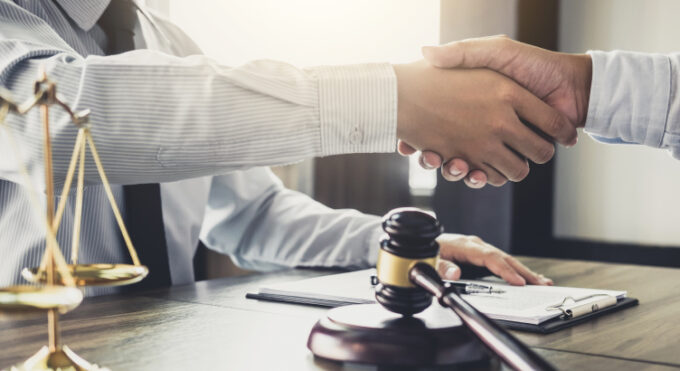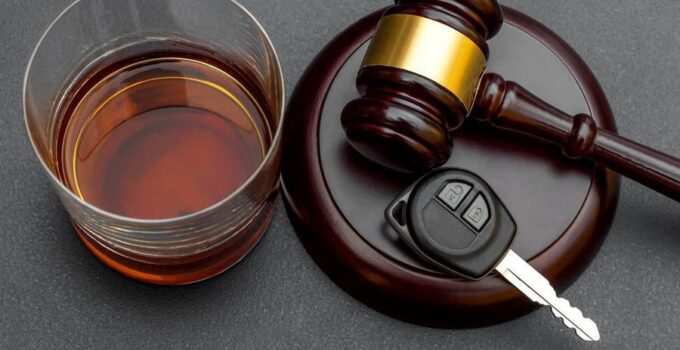Public intoxication accusations can be leveled against anyone. It may only take a minute to transition from enjoying a great time with friends to confronting legal issues. Dealing with such circumstances can provoke frustration, anxiety, and embarrassment.
In most jurisdictions, public intoxication occurs when a person becomes too drunk that they pose a danger to themselves or others. Such people may also display disorderly conduct in public places. Unfortunately, you can be arrested for public intoxication even if you didn’t mean any harm.
Lawyers are skilled in handling public intoxication claims and can help you win your case. If you hire them, they’ll assess the specifics of your case, scrutinize the evidence against you, and work tirelessly to build a solid defense strategy. You can find experienced lawyers at dwilawyerstexas.com or other sites. Here’s what you need to do if you’re charged with public intoxication.
1. Stay Calm And Cooperate With The Authorities

Source: guardian.ng
When the blue and red lights start flashing, your heart may race. However, staying calm can be a secret weapon. Breathe deeply, let go of tension in your shoulders, and remind yourself that you’re in control. Being courteous, attentive, and providing truthful responses can also prove beneficial during this encounter.
Failing to stay calm when dealing with law enforcement agencies could quickly escalate the situation and lead to more severe charges and penalties. In addition to public intoxication, you may face the charges of resisting arrest or obstructing justice if you’re violent. These additional charges could carry harsher penalties and may compound the legal trouble you’re already in.
Furthermore, failing to stay calm and cooperative might raise doubts about your credibility. The prosecution could use this against you, painting a picture of guilt and unreliability. Jurors, too, might be swayed by the perception of an uncooperative defendant. If you remain calm and composed, you may present yourself as a responsible individual who takes responsibility for their actions. Such poise can profoundly influence the court’s perception of you, resulting in a more favorable resolution. Being polite and cooperative doesn’t mean admitting guilt; it merely exemplifies your respect for the legal process.
2. Know Your Rights
Each person detained for public intoxication possesses rights, and you need to be informed about them. For example, you the right to remain silent. When the officer starts making inquiries, you should keep quiet to avert self-incrimination. Don’t hesitate to exercise this right; it exists to safeguard you. Law enforcement agents might attempt to exploit anything you say to your detriment, so refraining from sharing unnecessary details may serve as a protective shield.
But that’s not all. You also have the right to legal representation. Think of it as calling in reinforcement. When the going gets tough, a skilled attorney can be your angel, guiding you through the legal labyrinth. They understand the ins and outs of public intoxication cases, so you won’t be wandering in the dark.
Another vital entitlement you possess is the right to be informed about the reason for your arrest. If you’re taken into custody on grounds of public intoxication, seek clarification. Understanding the charges brought against you is imperative for constructing a solid defense. This awareness will not only empower you but it will also equip your attorney to contest any unfounded arrests or infringements on your rights.
3. Seek Legal Representation

Source: contractsspecialist.com.au
A lawyer can be a superhero in a public intoxication case. They’ll scrutinize every piece of evidence and examine the arrest procedure with a fine-tooth comb. If they discover any discrepancies or violations of your rights, they’ll use them to tilt the odds in your favor and get the case dismissed.
Secondly, these legal professionals can negotiate with the prosecutor for a reduced sentence or dismissal. They’ll step into the ring, armed with persuasive arguments and compelling reasons explaining why leniency is in the best interest of justice. A skillfully negotiated deal may lead to lesser penalties and may save you from the harsh consequences of a full-blown trial.
Your attorney can also protect you from the intimidating legal system. They’ll handle all the paperwork, court filings, and other tedious tasks, giving you the breathing room to focus on other things. With their guidance, you can confidently navigate the complexities of the legal process without feeling overwhelmed.
4. Gather Evidence
Evidence is the heart of any successful defense. In a public intoxication case, it can make a difference between walking free or facing a conviction. Surveillance footage can be your game-changing ally. Video evidence can offer an unbiased account of what transpired during the alleged incident and paint an accurate picture of your demeanor. It has the power to debunk exaggerated claims and sway the scales of justice in your favor.
Witness testimonies can also come in handy. Friends or bystanders who were present at the time of your arrest can serve as your loyal advocates. Their accounts corroborating your version of events can bolster the credibility of your defense. They can shed light on the circumstances surrounding the arrest and reveal provocation or mistaken identity. A credible witness can sow seeds of doubt in the prosecution’s case.
Besides witness testimonies, physical evidence can play a critical role in fortifying your defense. A breathalyzer test, for instance, can be challenged if doubts are raised about its accuracy. An expert witness can skillfully contest the validity of the results, leaving the alleged level of intoxication hanging in the balance. Additionally, receipts from bars or restaurants, if available, might offer a chronological timeline that contradicts the arresting officer’s account. Gathering tangible evidence will strengthen your defense and present a vivid picture of the events that unfolded on that fateful night.
5. Consider Rehabilitation Or Counseling

Source: alcoholrehabguide.org
Rehab isn’t a sign of weakness; it’s a badge of courage. Embracing it demonstrates your determination to overcome any challenges you may be facing. Seeking rehabilitation or counseling isn’t an admission of guilt; it’s a proactive step toward personal growth and transformation. Showing that you’re committed to issues related to substance abuse will present you as someone willing to learn from their mistakes and make positive changes. This can profoundly influence how the court perceives you and set the stage for a more compassionate and understanding approach to your case.
Furthermore, rehabilitation or counseling can act as a powerful counterbalance against any negative stereotypes associated with public intoxication. Society often attaches unfair labels to individuals involved in such incidents. Taking charge of your life and seeking help can help you defy those assumptions.
The Bottom Line
Facing a public intoxication case is no walk in the park. However, if you stay calm, cooperate, seek help from a seasoned attorney, and gather evidence, you’re likely to improve your odds of winning. Explore these options today to get a favorable outcome.







